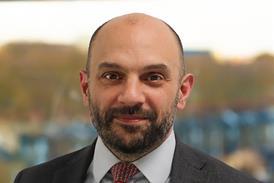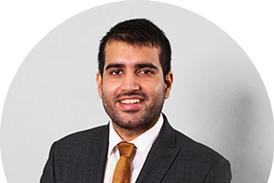English courts ‘should tread very carefully' before concluding that litigation here should take priority over the wishes of Ukrainian citizens to assist their war effort, a High Court judge has said as he explained why he adjourned a $4.2bn (£3.2bn) fraud trial.
Ukraine’s largest bank Privatbank is suing its former owners Igor Kolomoisky and Gennady Bogolyubov and a related companies for the alleged fraudulent misappropriation of almost $2bn through sham loans in 2013 and 2014. The claim is denied.
The case was due to go to trial in June, but was adjourned for a year at a pre-trial review last week after lawyers for the two men said the Russian invasion of Ukraine made it impossible for their clients – and their Ukrainian lawyers – to prepare.
Mr Justice Trower agreed that holding the trial this summer would be unfair on Kolomoisky and Bogolyubov, both of whom are barred from travelling under a presidential decree prohibiting males between the age of 18 and 60 from leaving the country.
Kolomoisky’s lawyers told the court that he is ‘engaged in active civic duties to assist with the war effort’, while Bogolyubov’s legal team relayed a question from their client to the judge asking if it is ‘better for me to be spending my time and energy with lawyers preparing for a hearing that may not happen or to assist my people prepared to defend their country?’

Privatbank argued the two men had exaggerated the difficulties of preparing their defence or giving evidence remotely from Ukraine and also suggested the defendants had given ‘almost no detail’ of what they are doing to assist the war effort.
But Trower ruled that ‘the interruption in the free flow of instructions and advice between solicitors and client, together with a concomitant interference in the defendants’ ability to prepare for the trial, is fatal to the suggestion that it might still be possible to have a fair trial’ in June.
In his written reasons for granting an adjournment, the judge said: ‘It is not just the defendants themselves but also their assistants and lawyers on the ground in Ukraine … who are also affected in their ability to continue to assist in the preparations for the trial by the many consequences of the invasion.’
Trower rejected Privatbank’s contention that the defendants had not provided enough evidence about their engagement in the war effort, adding: ‘The question which then arises is whether the way in which the defendants (and indeed others in Ukraine who assist them) have sought to prioritise their time is a reasonable response to the situation in which they find themselves.
‘This consideration was encapsulated by the question asked by [Bogolyubov] that I have cited above. While it can be expected that the position will change relatively soon even if the war drags on, it seems to me that … the English court should tread very carefully before concluding that devoting substantial time to litigation here in England should take priority over the wishes of Ukrainian citizens to assist the war effort in Ukraine.’






























